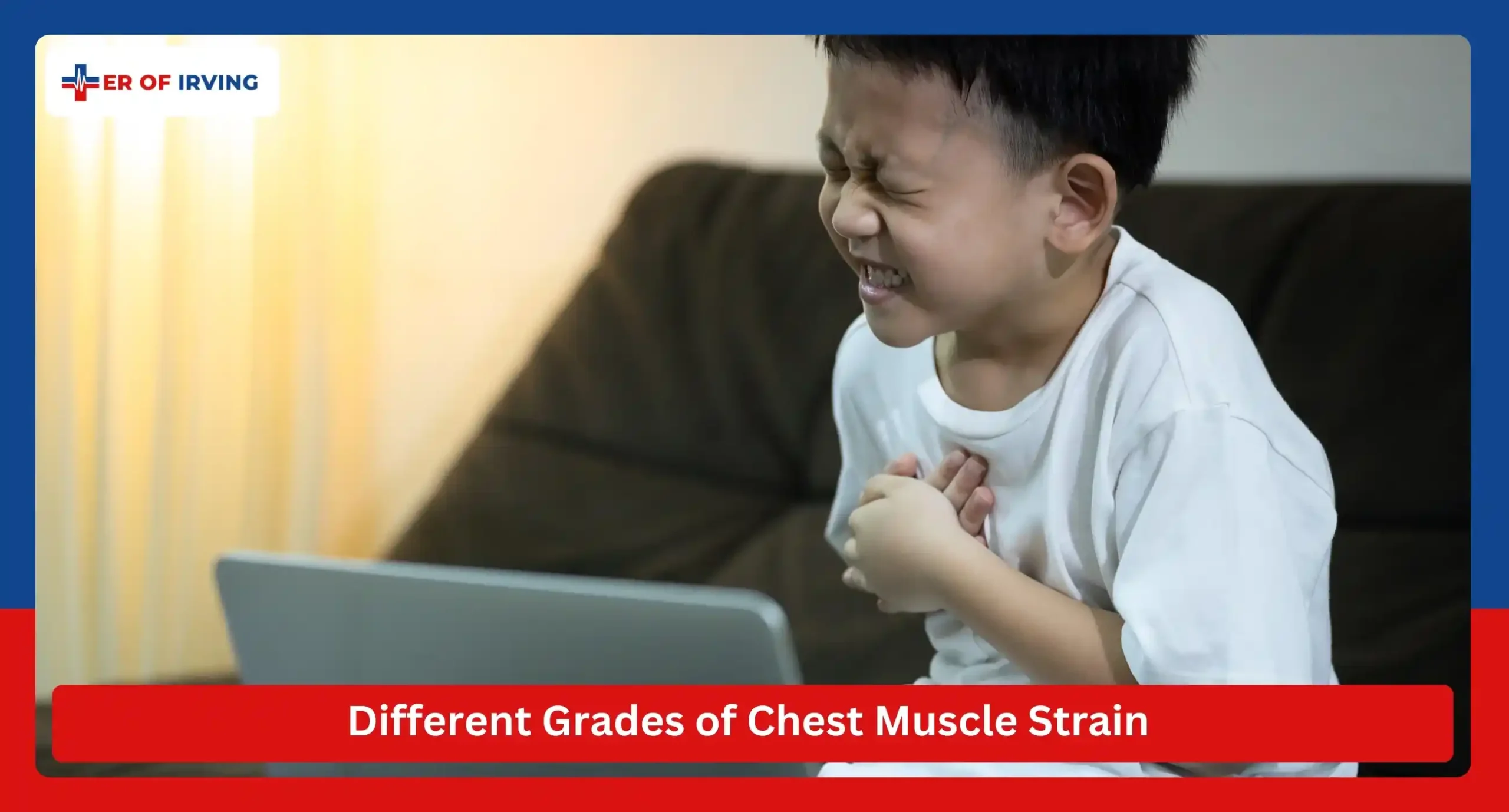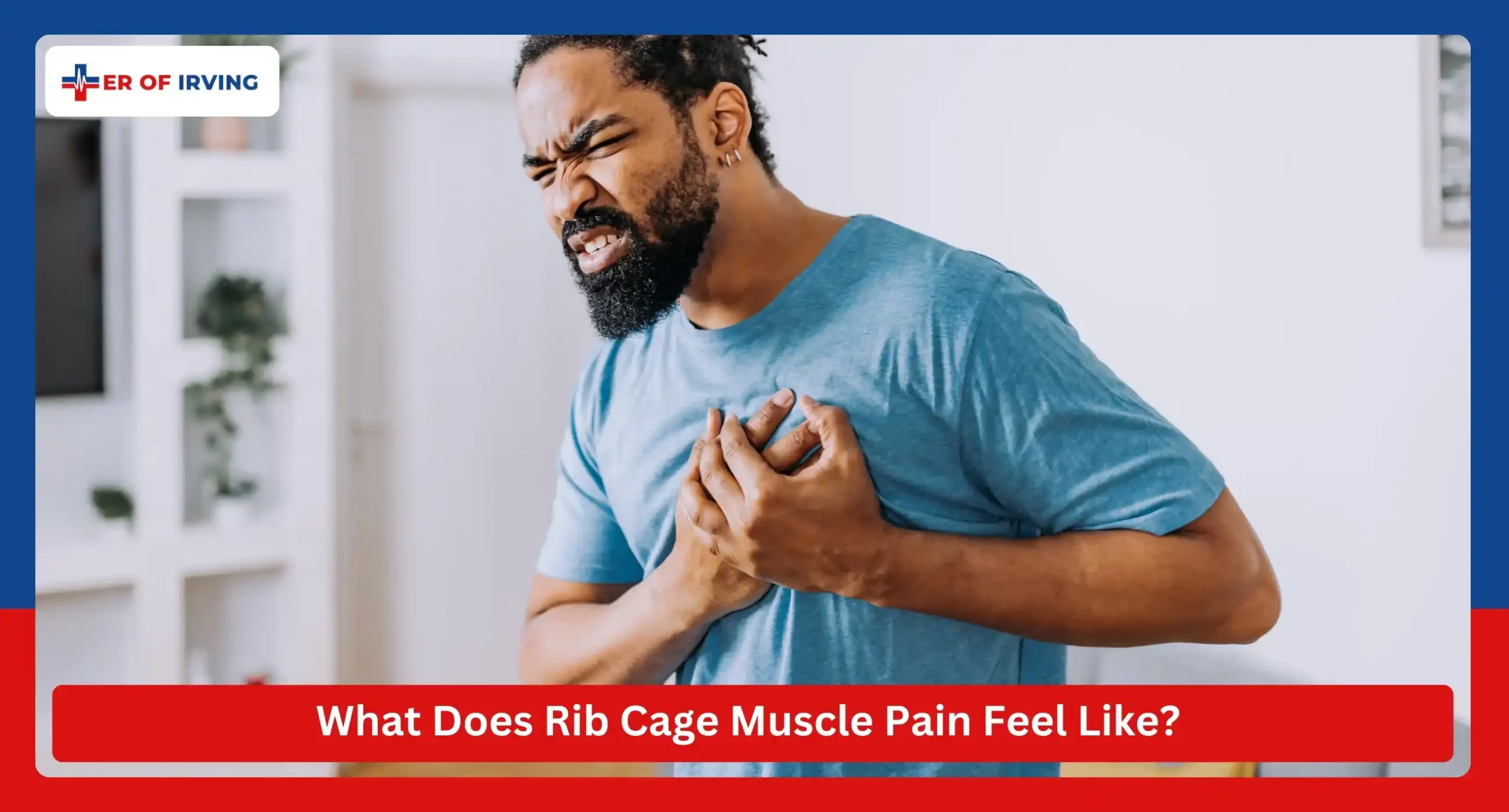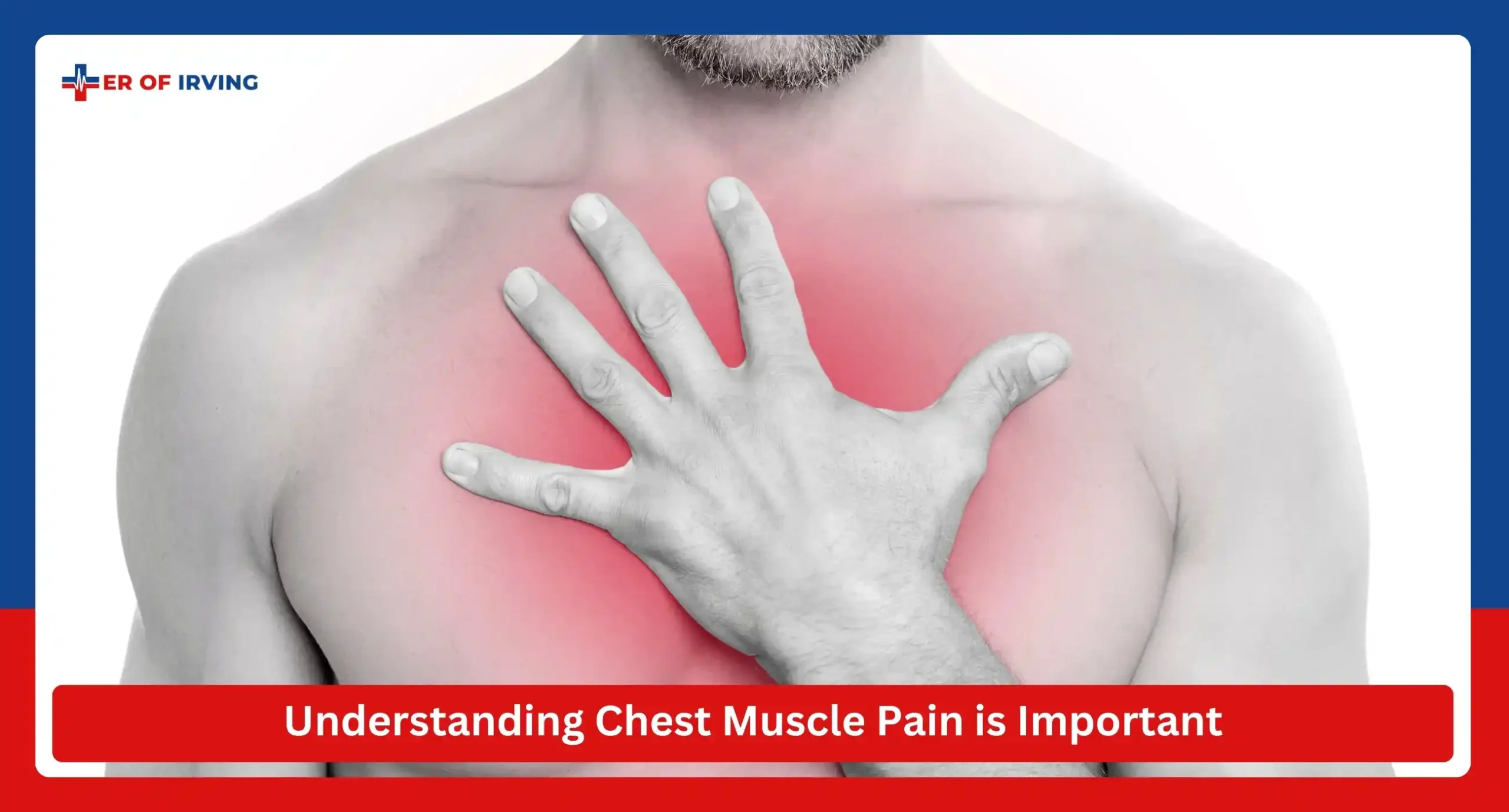Chest muscle pain can be a serious situation, as it mimics cardiac-related issues. It could be caused by issues in the rib cage, inflammation in the chest, and strain in the chest.
Musculoskeletal pain could be due to different reasons and is often treatable. By understanding the common causes and signs of chest muscle pain, you can work on treating them and finding quick relief.
In this blog, we will guide you through the common signs of chest muscle pain, its causes, and the most effective treatment options.
What is Chest Muscle Pain?
Chest muscle pain is characterized by a sharp, achy, or tight sensation in the chest. The intensity of such pain may increase relatively when you take a deep breath, cough, or even move your upper body.
Muscle pain in the chest might be uncomfortable, but it is not always serious. This is because chest pain caused by costochondral injury, chest inflammation, muscle strain in the chest, and rib cage muscle pain is due to musculoskeletal issues, which do not affect the heart or lungs.
It is important to understand what caused the chest pain, as in many cases, people often confuse it with heart-related issues. If you suddenly encounter a pain in your chest, then you should instantly visit an emergency room. At ER of Irving, we are open 24/7 to provide the most effective and quick emergency service.
Different Grades of Chest Muscle Strain

The severity of chest muscle pain differs depending on its intensity. Mainly, the chest muscle strain is categorized into three main grades. Understanding these grades will help you know the level of pain and the medical attention it requires.
Grade 1—Mild Pain
This level of pain is the most common and the least painful. It is caused by mild swelling, inflammation in the chest, or minor stretching. Mostly it is treated through light exercises, stretching, and medications.
Grade 2—Moderate
This pain happens when the muscle fibers partially tear and are slightly painful. This pain can affect your daily activities and can cause breathing problems. It occurs due to heavy weight lifting, repetitive movement, and sudden forceful action and can be treated through anti-inflammatory medications, ice/heat therapy, or extended rest.
Grade 3—Severe
This level of pain is the most intense and is caused by a complete tear of muscle fiber. It causes intense, severe pain and swelling. It is caused by major accidents or heavy action. Such pain can be treated through surgeries and immediate medical attention and may require detailed diagnostic imaging.
Symptoms of Chest Muscle Pain
Understanding the common signs of muscle pain in the chest can help you distinguish it from other types of chest pain. Here is a list of common symptoms of chest muscle pain:
- Sharp or aching pain in a certain area of the chest
- Chest muscle pain on the left side, especially
- strained chest muscles, pain that goes towards the back, causing back pain
- Pain that increases while moving, breathing, or under intense pressure
- Tightness of the chest when touched
Causes of Chest Muscle Pain
There are different causes of chest muscle pain, and the impact of the pain depends on its causes. Moreover, the severity and treatment of the strained chest muscle pain also depend upon its root cause.
Muscle strain in the chest
This is one of the most common causes of chest muscle pain and is usually caused by heavy lifting or sudden heavy action. It further leads to a pulled chest muscle and feels like a sharp and aching pain.
Inflammation in the chest
Chest inflammation can be chronic, and if not treated, the pain can be prolonged. This issue arises when the chest muscles get inflamed, affecting the nearby connected tissues.
Costochondral Pain
This pain is also called costochondritis and is caused when the cartilages where the ribs and breastbone meet get inflamed. People often confuse this type of chest wall pain with cardiac-related issues such as heart attacks.
Chest Wall Pain or Injury
At times, the chest wall muscles are overused or severely strained in serious action, and then it might result in swelling or bruising.
What Does Rib Cage Muscle Pain Feel Like?

Rib cage muscle pain is often felt upon movement, as it is different from the internal chest pain that is linked to heart or lung issues. The severity of the pain depends upon its cause and the location of the injury.
Pain in rib cage muscles is often caused by bad posture, heavy exercise, injury, or infection in the respiratory system. It can also be caused by sudden twisting or costochondral inflammation.
Many people wonder, “Can you pull a muscle in your chest or ribs?” The answer to it is yes; these muscles can cause pain or strain in the case where you overstretch or overwork.
It is important to seek instant medical help if you experience sharp, dulling, or worsening pain that might become painful when you breathe or perform a physical activity.
How to diagnose musculoskeletal chest pain?
A chest pain treatment can only be undertaken once the chest pain is diagnosed and it is identified whether it’s related to musculoskeletal or some other pain. Chest pain from muscle pull or inflammation can be painful and can affect your daily activities.
Below are a few ways to diagnose musculoskeletal chest pain.
- Identify it through lab testing or diagnostic imaging.
- Assess the muscle and observe whether it’s swelling or has muscle tension.
- Look for posture changes, location of pain, and difficulty caused by movement.
- Palpate over the chest and identify whether the chest is tender.
Treatment Options for Chest Muscle Pain
Chest muscle pain can be treated in different ways, depending on its cause and the intensity of pain. In mild cases, it can be treated with rest, minor exercise, or medications, but in severe cases, it might require therapy or even surgery.
Rest and Gentle Movement
If the chest muscle pain is not hurtful or causing intense pain, then you should consider having some rest or doing gentle stretching that does not cause any kind of stress on the muscle.
Ice and Heat Therapy
This treatment is most preferred in cases where the chest muscle pain is caused by inflammation. In this therapy, you need to apply ice for the first 48 hours after encountering pain and later on apply heat to reduce chest pain and inflammation.
Medications
Taking doctor-prescribed medications can also ease the muscle strain in the chest or reduce inflammation in the chest. However, these medications should only be taken after consulting a doctor.
Support Devices
They are different devices that are used to support the rib cage muscle, such as rib braces or chest binders. These devices help in relaxing the muscles and easing the pain.
Surgeries
In severe cases when the pain is intense and cannot be relieved with any type of medication, then in such cases it is best advised to get the necessary surgery done.
Understanding Chest Muscle Pain is Important.

Pain from chest muscle strain can be uncomfortable and can also affect your daily activities. It can also be confusing, as it sometimes relates to cardiac issues. Knowing the early signs, causes, and treatment options can help you overcome the pain.
Pain in chest muscles can differ; it can be mild or severe depending on its cause. With the right care and proper treatment, you can overcome the pain and avoid long-term complications.
If you ever encounter chest pain, then simply visit the ER of Irving or contact us to get treated soon.
Call Now Get Direction
Frequently Asked Questions (FAQs)
How to know if the chest pain is muscular or related to the heart?
Chest muscle pain is usually sharp and dull, and severe cases might radiate towards the back and could turn worse upon movement. Whereas heart-related pain appears on the left side of the chest and is a sharp, unbearable pain.
How long does it take to heal chest muscle pain?
Chest muscle pain can take up to a few weeks to months, depending on the severity of the pain. Mild pain can be cured easily with proper rest.
Can overstress cause chest muscle pain?
Yes, stressing a lot can cause chest muscle pain as the body fights through the responses, causing a heavy load on the muscle.
